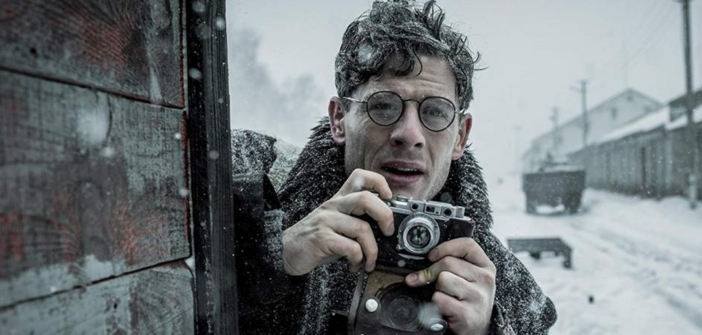Agnieszka Holland’s film, “Mr. Jones,” clearly raises the question of putting a past history into perspective in today’s world. How can cinema relate history to the present without falling into academicism?
In “Mr. Jones,” everything is a matter of context, starting with the perspective of ignorance. The film portrays the Soviet world under Stalin just before the start of World War II from a Western and notably British point of view, until a young political advisor named Gareth Jones takes on the role of journalist and heads to the USSR with the aim of interviewing Stalin.
The film brilliantly plays with these contextual stories, right from the first minutes where George Orwell himself gives us an initial insight into what is happening, allowing the film to immediately take a step back from the ensuing plot and highlighting the intellectual approach of questioning that will be the main focus of the film.
How far are we willing to accept the injustices of a system to be integrated into it as an individual on the inside? This question is reminiscent, far from insignificantly, of what is still happening today in this second decade of the 20th century.
As explained at the beginning of the film, the story is conveyed very simply, in a linear fashion except for the two or three time jumps with the narrator, but otherwise always from the same viewpoint, that of Gareth Jones. Thus, all the parts of the film are quite easily understood without falling into over-explanation but rather maintaining a perfect balance, all within imagery, a rhythm, and editing that fluidly serve the mise-en-scène. While not very understated, which can be bothersome at times in the long term, the film remains in a constant quest for total harmony that resonates with the viewer.
The film projects us into three distinct major environments: the Western world with Great Britain, and the USSR with Moscow initially, a showcase of the supposed Soviet success, and the countryside of that same world, a victim of so many atrocities that have been concealed, both from the Russian and Western sides.
But it is through the contrast of these elements that the film stands out and reveals its full intelligence. Indeed, the film manages to tell its story visually through contrast alone, greatly contributing to the strong rhythm of the film, even though not much happens physically on screen.
This entire journey, which will later announce a return to origins much less welcoming than at the start, becomes more formal, superficial, and hypocritical, still in the same colors but faded by the hero’s experience, which reflects only a bitter taste of deception victimized by hypocrisy, unable to distinguish good from evil but only able to observe a world on the brink of collapse.


